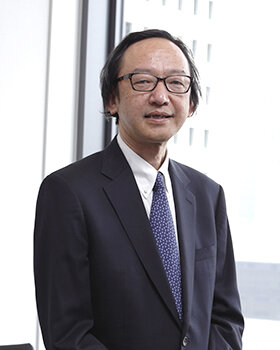Media Global Economy 2015.06.10
U.S.-based scholars draft war anniversary statements in Japanese leader's voice
Professor Takeo Hoshi, a senior fellow with the Walter H. Shorenstein Asia-Pacific Research Center at Stanford University, is an old and respected friend of mine.
An economist of extremely prolific ideas, Hoshi recently teamed up with his colleague Daniel Sneider to carry out an interesting and significant project: They asked Stanford researchers to imagine they were the prime minister of Japan and write a statement marking the 70th anniversary of the end of World War II.
Eight scholars, including Hoshi, took up the challenge, with all the others being non-Japanese (Alberto Diaz-Cayeros, Peter Duus, Thomas Fingar, David Holloway, Yong Suk Lee, Henry Rowen and Sneider). Their research areas include economy, politics, diplomacy and security, and history.
The request imposed three conditions. First, the goal of the statement was to "garner support for an increasing leadership role for Japan in East Asia and the world." Second, the statement had to touch on the meaning of the war that ended 70 years ago. Third, the statement in English should not exceed 700 words, so it would be roughly the same length as Prime Minister Tomiichi Murayama's statement that marked the 50th war anniversary and Prime Minister Junichiro Koizumi's 60th war anniversary statement.
As the first condition indicates, the researchers were asked to present what they believe the 70th war anniversary statement should be in consideration of its bearing on Japan's diplomatic strategy.
TRACK RECORD; PLEDGE FOR PEACE
Their statements, despite the obvious diversity, share several common features.
First, they all refer to Japan's outstanding achievements during the seven postwar decades. Most of the statements emphasize Japan's track record in rising from the ruins of war, realizing socioeconomic affluence and having a consistent respect for democracy and peace.
Second, most of the statements pronounce that Japan will continue to contribute to peace and prosperity of the world.
Diaz-Cayeros, for example, mentioned Japan's extreme poverty in the immediate aftermath of the war. He said the country will play a role in solving the world's economic and environmental problems by sharing lessons it learned from the rebuilding process and the "hard work ethic" that helped its recovery.
Hoshi's statement ventured out from economic contributions to those in the realms of diplomacy and security, saying Japan hopes to play a part in world peace by way of "active pacifism."
Fingar's text mentioned Japan's ambition to exercise leadership as a permanent member of the U.N. Security Council.
Many of the statements present a forward-looking attitude by emphasizing the achievements of postwar Japan and calling for further expanding the country's international contributions on that basis.
But all statements carry a third common feature at the same time: expressing remorse over what Japan did before and during World War II.
Holloway, for example, quoted a passage from the 1995 Murayama statement that expressed remorse and apology: "... now, with equal solemnity, I reaffirm what he said. It is the right and the honorable thing to do."
Duus referred to the International Military Tribunal for the Far East, held by the Allied powers, and stated unambiguously, "The leaders whose miscalculated plans and misguided dreams led to the war were duly brought to justice before an international court, whose judgments the Japanese government accepted and has continued to accept for nearly seven decades."
Even Hoshi's statement, which set forth an "active pacifism," expressed "deep remorse and heartfelt apology" for Japan's colonial rule and aggression, which led to the war and caused tremendous suffering, particularly to people in neighboring Asian nations.
REMORSE UNDERPINS GLOBAL CONTRIBUTIONS
Those statements, drafted by scholars who have long studied the Asia-Pacific region, strengthened my reflection of how the first and second common features--the high marks for Japan's postwar track record and calls to expand the country's global contributions--relate to the third commonality--remorse over and criticism of Japan's actions before and during World War II. The features are not at odds with each other, but the latter, on the contrary, underpins the first two.
If you want Japan to win trust in the international community and enhance its clout in the future, you must make clear, as a prerequisite, the positions and value systems that today's Japan stands on.
To take up one issue of contention as an example, Prime Minister Shinzo Abe has often expressed the view that the use of force to change the status quo is unacceptable. In light of the world situation today, that view deserves to be repeatedly emphasized.
But if you want to provide persuasive power to that argument and give it a mainstream status in the global community, you must frankly admit that Japan's one-time aggression, or an attempt literally to "use force to change the status quo," caused tremendous and devastating damage to the people of Asian countries, including Japan, as well as express sincere remorse and an apology. And you must show that postwar Japan has wiped out the institutions and nationalistic value systems that underlined such previous behavior.
The 70th war anniversary statement provides a key opportunity to do so.
(This article was translated from the Japanese transcript of Mr. Okazaki's column in "The Asahi Shinbun" on May 20, 2015.)
